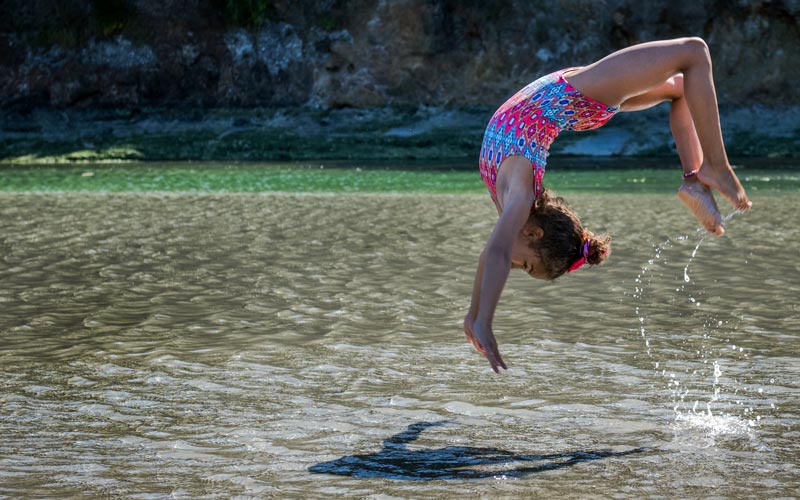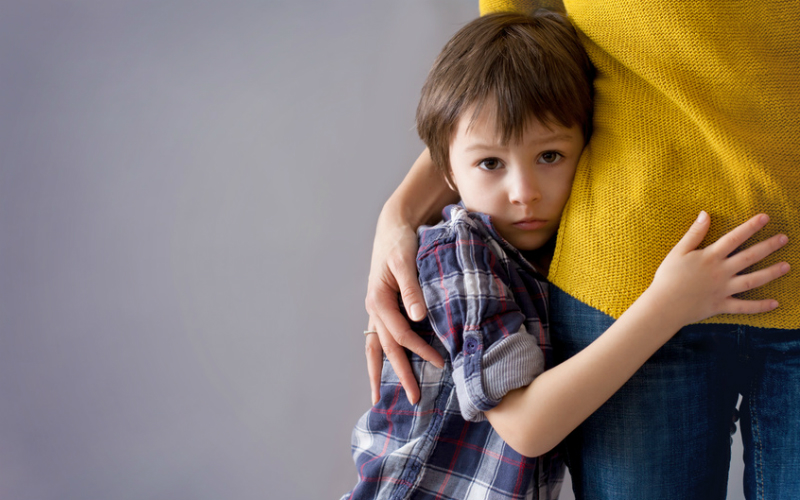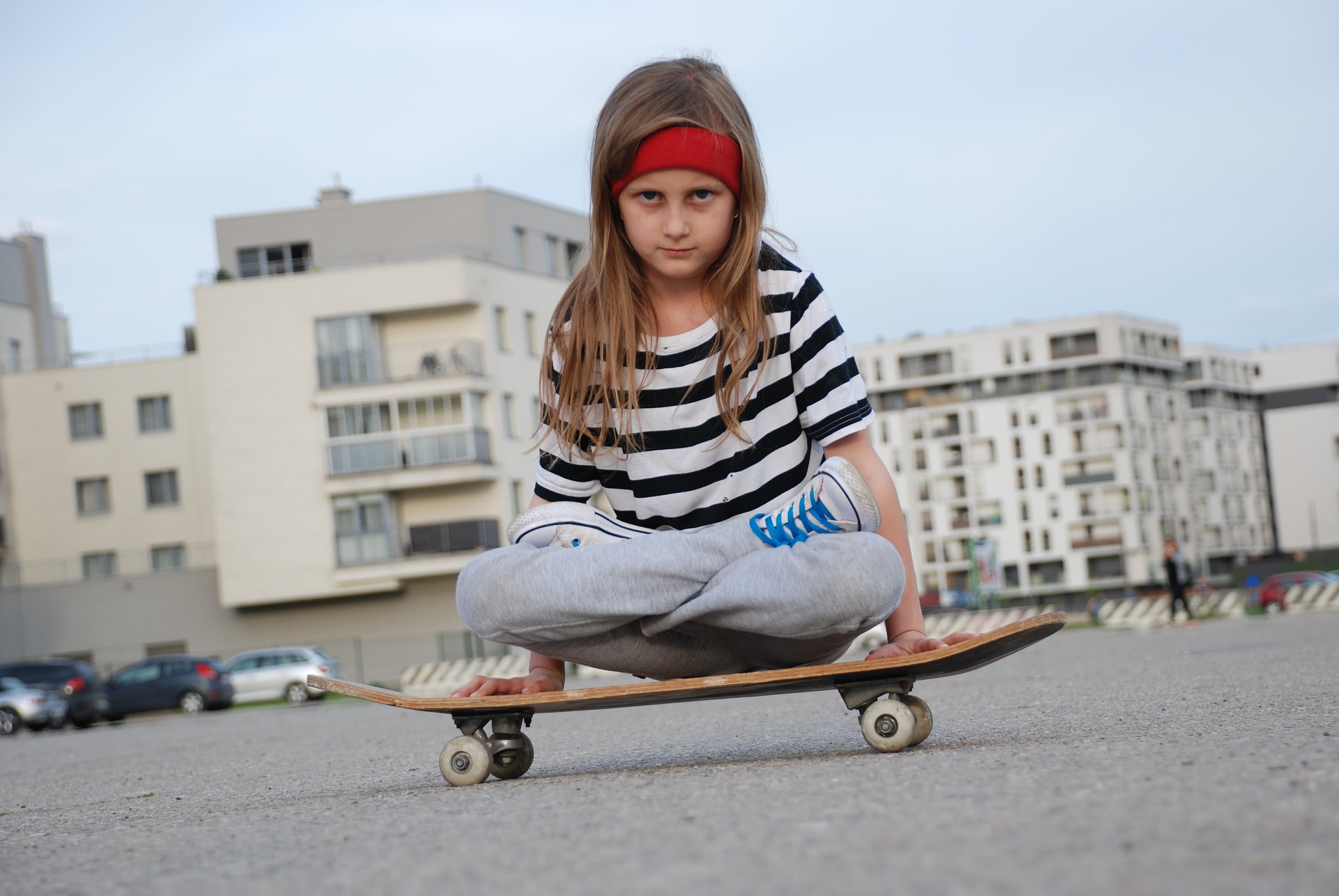Many children also learn during the holidays – this is shown by a scoyo survey. But parents find it even more important that Children in the school-free time strengthen your self-confidence. We’ll tell you best Tips and exercises.

| © Tim Mossholder / unsplash.com
For many students, vacations are a long-awaited break from math formulas, grammar and vocabulary. Holidays are not really free of learning for all children and adolescents. More than half of them have to go to school even when they are out of school. This is shown by a forsa survey commissioned by the online learning specialist scoyo among 1,003 parents of school-age children. *
Strengthen self-confidence in children instead of buffalos
At 55 percent, however, the proportion of holiday learners in 2015 decreased compared to previous years. Because even if many families keep an eye on school performance during the holidays – almost all parents find it even more important that their children develop in other areas during this time.
95 percent each value that their children develop social skills and strengthen their self-confidence. 93 percent want the children to become more independent, 83 percent consider the further development of creativity to be important. School performance only comes in last: For 65 percent of parents, it is important that their children get ahead in this area during school time.
Tips and exercises to strengthen children’s self-confidence and social skills
"It makes the most sense if the children get from their parents what they miss most in their everyday life during vacation: time that they can organize themselves. This is the basic prerequisite for developing personal skills such as self-confidence and independence.", comments Daniel Bialecki, Managing Director of scoyo.
1. Promote self-confidence – right from the start
Positive motivation is essential to strengthen children’s self-confidence. This does not mean to praise children in the highest tones for every little thing, but always when they have made a great effort. In addition, parents should be cautious. If children themselves have achieved something out of their own motivation and effort, a positive feeling develops – in the best case, they will gladly accept challenges in the future and are not afraid to fail because they know that they can do it next time.
Sentences like "We are quite sure that you can do it" So they work miracles and are much more sensible than pointing out weaknesses and becoming impatient: "How? You still haven’t understood that?". This puts children under pressure and makes them doubt themselves.
2. Adventure strengthens self-confidence
Michael Fritz, CEO of the "Little Researchers’ House", considers the summer vacation ideal for strengthening self-confidence. "Children need adventure and tasks that they set themselves", explains the educator. "With every challenge they master, they experience: ‘I can do something.’ This feeling is invaluable because it strengthens children’s confidence and makes them so strong."
3. Practice social skills – preferably without supervision
The good news for all parents who want to strengthen their children’s social skills and self-confidence: both develop almost by themselves. This is how Sabine Vutz, educator and school mediator sees it. "Wherever children play undisturbed, they have fun together, they have to make compromises or endure an argument. This is how they acquire social skills." However, the emphasis would be on "undisturbed", Vutz warns, "undisturbed by adults who constantly take corrective action." So, for example, if you leave your child to the club entertainer on vacation, you are only choosing the second best solution.
4. Promote independence
Self-confidence and independence are closely related. When we do something all by ourselves, it makes us proud and happy. This experience is especially important for children "self-efficacy" important to develop a positive self-confidence. To strengthen the independence of children, Sabine Vutz offers parents a simple rule of thumb: "Everything a child can do without help should be allowed to do it himself – even if it takes longer." School-free time is particularly suitable for such experiences.
School learning on vacation? Only in emergency!
But what if the children urgently need to do math or buffalo vocabulary in order not to miss the connection in the next school year? Daniel Bialecki advises to limit the learning time. In addition, the children should be given as much freedom of choice as possible when repeating the learning material and, for example, should be able to playfully try out new methods – such as digital learning opportunities.
Personality development and learning success are inextricably linked, explains Bialecki: "Confident children are more likely to dare to make mistakes – an important learning requirement. Creative children are good problem solvers, Independence is important, to acquire knowledge. Those who start the new school year with these skills will also be better at math tasks and vocabulary lists."
Learning with fun on vacation? Only with scoyo!
Further results of the study "Learning on vacation in 2015"

The more educated the parents, the lower the amount of learning
According to the survey, every fifth child repeats the material not only once but regularly on vacation. Just under half of the children who study on vacation (46 percent) buffle one to two hours a week during school-free time, 34 percent even over two hours. Children have to be at the desk significantly more often if their parents have a rather low level of education: Two thirds of the mothers and fathers with a secondary school certificate stated, that their children learn during the holidays – but only half of the parents with a high school diploma.
* Nationwide forsa survey commissioned by scoyo in May 2015. 1003 working parents between 25 and 49 of school-age children were surveyed.
RELATED ITEMS
-

Stress in children: tips for parents against stress at school
School stress from class work, but also arguments with friends or too many afternoon appointments can put children under pressure. We give tips against…
-

7 tips for a relaxed flight with children
The time has come! The vacation is booked, the anticipation increases immeasurably, but there is still a certain unease in the back of the head. Why is that…
-

Yoga for children: exercises – tips for parents, superprof de
August 10, 2018 ∙ 8 minutes of reading Yoga is becoming increasingly popular, as everyone knows. Most cities have numerous courses for…
-

Scarlet fever in children – tips for prevention – treatment, I am a mother
Health is an issue that parents always have in mind. That is why it is important to be aware of the most common teething problems in order to avoid them…
